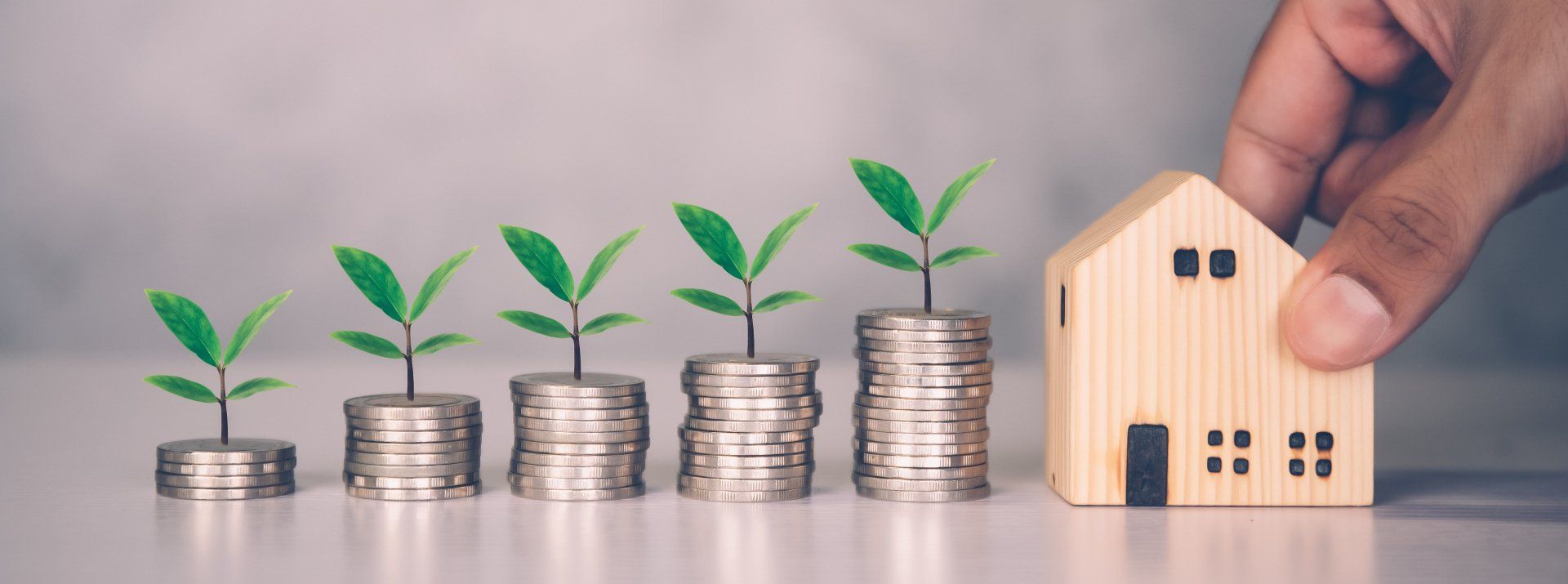Growing Money Through Appreciation
5 Factors in Home Appreciation

You’ve probably heard that real estate is a good investment. What you might now know is exactly how it’s a good investment. There are many factors that determine whether a property is indeed a good investment. Read on to learn about appreciation, equity, and 5 factors to consider before purchasing a property with an eye on investments.
Spoiler alert: there will be math.
In real estate, appreciation refers to how much your home’s value has increased over time. To determine your current appreciation, subtract the purchase price of your home from its current value. (Tip: work with a real estate agent for local market pricing.) Divide the result by your purchase price then multiply by 100.
Here's an example: in 2015 you purchased your home for $90,000. Working with an agent, you determine your home would likely sell for $135,000 today.
$135,000 - $90,000 = $45,000
$45,000/$90,000 = .5
.5 x 100 = 50%
In this scenario, your home has appreciated in value by 50%. That equals 8.3% per year, just slightly less than Oregon’s average appreciation rate of 8.5% annually and slightly higher than the national appreciation rate of 7.5% (https://www.sammamishmortgage.com/oregon-housing-forecast/).
Before buying a home, it is wise to consider the potential appreciation of the property. Here are 5 factors to consider:
- Local Market: Klamath County, like much of the country, has a strong real estate market currently. Strong markets are a good indicator that your home’s value will continue to increase over time.
- Location: If you think people want to live where the property you are considering is located, chances are good it will continue to increase in value. Consider the quality of nearby schools, neighborhood reputation, and planned developments when determining if the location is good.
- Land Value: While buildings age and deteriorate over time, land typically does not. Consider features of the land such as proximity to lakes and rivers, natural resources, and access to amenities.
- Home Condition: While this may seem backwards, properties that have a few issues that are easily solved can appreciate quickly. Plan to complete upgrades such as new flooring or modern windows over a span of several years to reap the most benefit from your investment.
- House Size: Despite being counterintuitive, smaller homes typically appreciate at the same rate as larger homes. That means your percent return will be larger overall when purchasing a smaller home. Additionally, any needed repairs will require fewer materials and you’ll be able to keep utility costs lower in a smaller home.
So how do you tap into that appreciation? Through something called home equity. Equity is the difference between what your home would sell for and what you still owe on it. Many lenders will provide loans on the equity you have in your home, allowing you access to cash when you need it. As your home appreciates in value, that difference becomes larger than simply your monthly mortgage payment. By considering a property’s appreciation when purchasing, your money grows more than the payments you’ve made.




